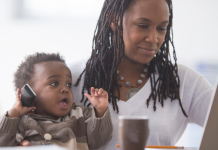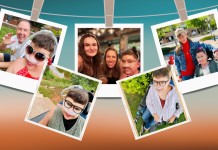It is hard to believe December is here! To say this year has been unusual is an understatement. At times, the world has felt unrecognizable. Filled with medical, economical, and emotional burden. Topped off with social unrest.
Amidst the uncertainty permeating life, I’ve started wondering what I’ll think of 2020 ten years from now. This prompted me to dig further. To ask some loaded questions.
Instead of simply enduring the hard times, what lessons can be learned? To encourage growth from the hardships.
I began to reflect on three words: Empathy. Altruism. Resilience. All of which are related to emotional intelligence.
Emotional intelligence is the capacity to be aware, control and express one’s emotions, and handle interpersonal relationships judiciously and empathetically.
One thing is certain, high emotions filled 2020. No matter where we stood on this year’s hot topics, more emotional intelligence amongst our peers, leaders, various media outlets and ourselves would’ve helped!
Research shows that although genetics plays a role in emotional intelligence, we can learn and teach these skills (hooray!). So how do we expand upon this skillset in ourselves and in our littles?
Start with Self Awareness
One could argue that self-awareness is the foundation of emotional intelligence. Before we can understand the thoughts and emotions of others, we must be able to recognize and understand the components of our own character.
Coming to terms with our own motives can solidify our sense of purpose and direction. This process can look a little different for everyone. Maybe it means more journaling, or prayer, or meditation. However it may look for you, the end goal is to pause and self-reflect.
Invite your child to join! Talk to your child about mindfulness. Practice noticing feelings together. This will help your child learn to manage stress, focus better, and eventually regulate overwhelming emotions (a biggie, more on this below!).
Next Up, Social Awareness
Alright, so you’ve taken a good hard look at yourself. You have a better idea of your how your emotions effect you. Now how do you begin to understand the emotions and intentions of others? To empathize?
Empathetic people allow the feelings and experiences of others to resonate with them. This facilitates more appropriate emotional responses.
Step one? Practice listening. Listen without interrupting. Listen without clouding conversation with your own preconceptions. Avoid the urge to judge. Just listen.
Children learn empathy from experiencing our empathy for them. So, listen to them, too. Tune in to their emotional needs.
Next, get out of your bubble. Learn about a new culture. Read stories from various news outlets. Encourage healthy dialogue about our differences. Be proactive about practicing empathy together as a family.
Finally, Self-Regulation
To me, self-regulation is the putting-it-all-together part. Once we better understand our emotions and those of others, we have better equipped ourselves to handle those not-so-healthy impulses. That creates room for productive outcomes.
For most of us, improving this skill is much easier said than done — myself included!
Approach self-regulation as you would any other developmental milestone. Isolate and practice. Start by recognizing that how we react is our choice. Take ownership of those transient emotions. Then, take responsibility for your reactions to them.
Children who grow up in reflective, peaceful and analytic environments learn to manage conflict and diffuse difficult situations themselves.
Let’s grow from 2020.
Let’s encourage empathy, altruism and resilience. Through the steady practice and modeling of emotional intelligence. After all, the real test of mothering is not only our children’s academic or professional achievements. More so who they become and how they treat others.














